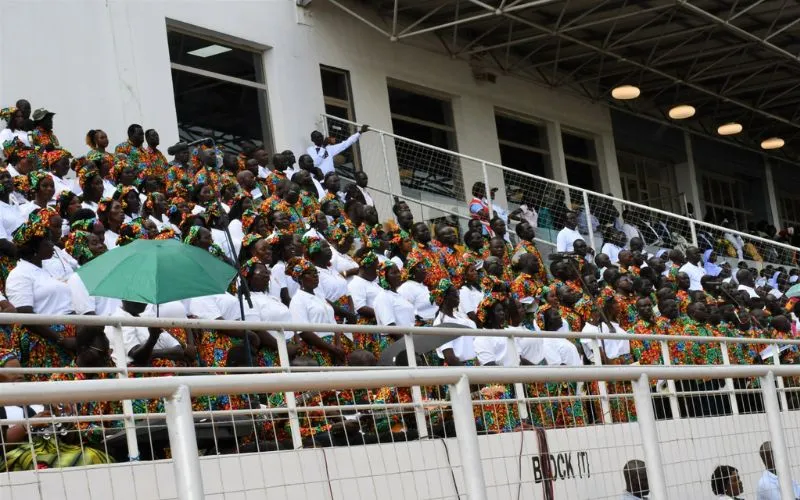 Credit: Ginaba Lino Michael/South Sudan/Juba
Credit: Ginaba Lino Michael/South Sudan/Juba
“We will remember that despite the insecurity that was here during that time, we came from all the corners of the South Sudan to Juba in order to witness the Ordination of the Bishops. And that is the beginning of the life of the church now that we are in,” he said.
Cardinal Zubeir described the Golden Jubilee of the Catholic hierarchy in Sudan and South Sudan as having been “50 years of struggle, 50 years of fear, and 50 years of suffering”, noting that the hardships were still rife in the region.
Despite the struggle, the Cardinal since his elevation in October 2003 said, the church expanded, adding, “The growth coincided, we would say, with the troubles that we had that scattered us.”
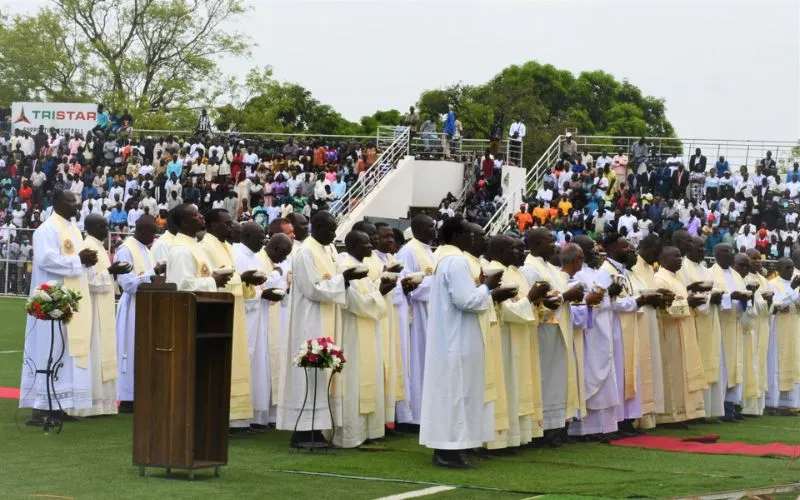 Credit: Ginaba Lino Michael/South Sudan/Juba
Credit: Ginaba Lino Michael/South Sudan/Juba
(Story continues below)
He said that in the years that followed the first Episcopal Ordination in Sudan and South Sudan, he saw the registration of over 6,000 people for Baptism every Easter. “6,000, after two years of catechesis. Add up that number and see what it means in 50 years. But God was doing something here. It helped us,” he said.
Cardinal Zubeir reflected on how challenging it was, decades ago, to identify as a Christian, noting that the situation had improved for Churches over the years.
“There was a time when people were afraid to say they were Christians,” he recalled, and added, “People were afraid to wear crosses. People were afraid to affirm their rights, for instance, on Sunday, that they should go for (Holy) Mass. But this event pushed us out of the churches, into the hillock, and changes came about. We want to thank God for all the graces He poured on us during these 50 years.”
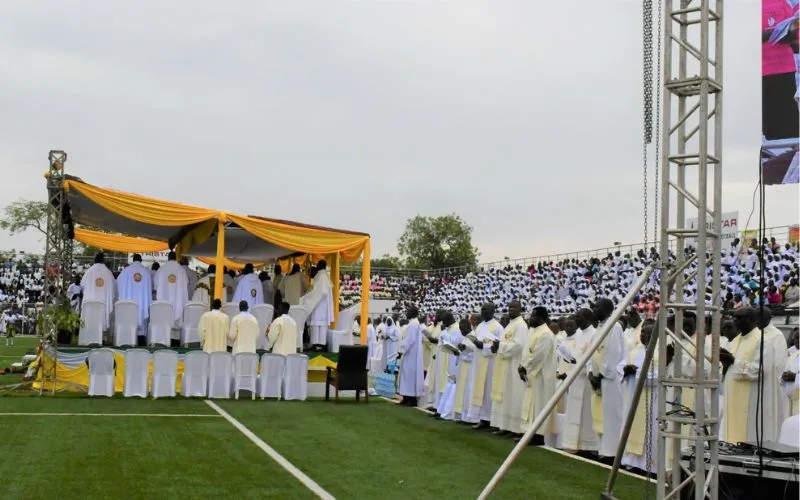 Credit: Ginaba Lino Michael/South Sudan/Juba
Credit: Ginaba Lino Michael/South Sudan/Juba
“We want to pray that God strengthens us to go on. The work is not finished,” the Cardinal said, and added, “Let every Christian, every South Sudanese, in the Sudanese or South Sudanese soil, know that he or she is sent by Jesus Christ to be an apostle, to be a missionary.”
He expressed optimism that the Golden Jubilee of the Catholic hierarchy in Sudan and South Sudan would be “a beginning which will carry us where the Lord wants us to go.”
“Let us start a new year of the church, going towards Christmas, to renew this determination…50 years ago, God was determined that the gospel should spread all over Sudan. And He did that. Now it is for us to say, it has to spread, it must take roots,” Cardinal Zubeir appealed.
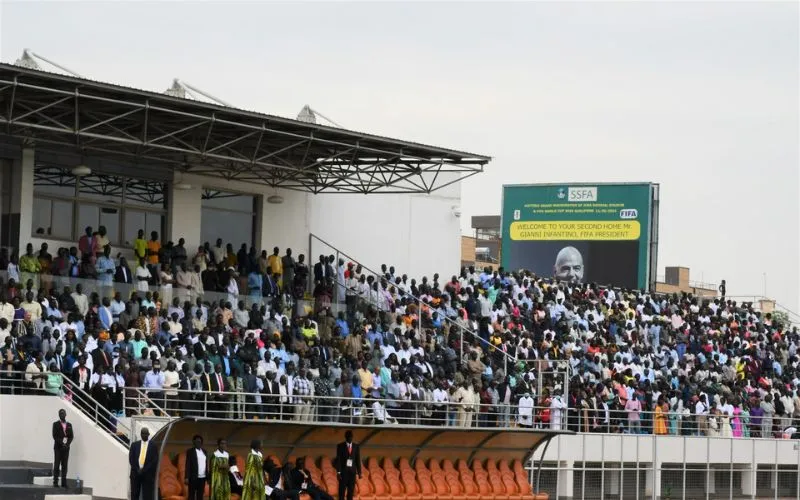 Credit: Ginaba Lino Michael/South Sudan/Juba
Credit: Ginaba Lino Michael/South Sudan/Juba
The November 24 Golden Jubilee celebrations of the Catholic hierarchy in Sudan and South Sudan also coincided with the conclusion of the countries’ Eucharistic Congress, a yearlong spiritual experience realized under the theme, “One Body One Spirit”.
In his homily, Cardinal Zubeir called for a renewal of the love for the Eucharist.
The Cardinal reflected on the countries’ inaugural Eucharistic Congress four decades ago that he said had found both countries in great turmoil.
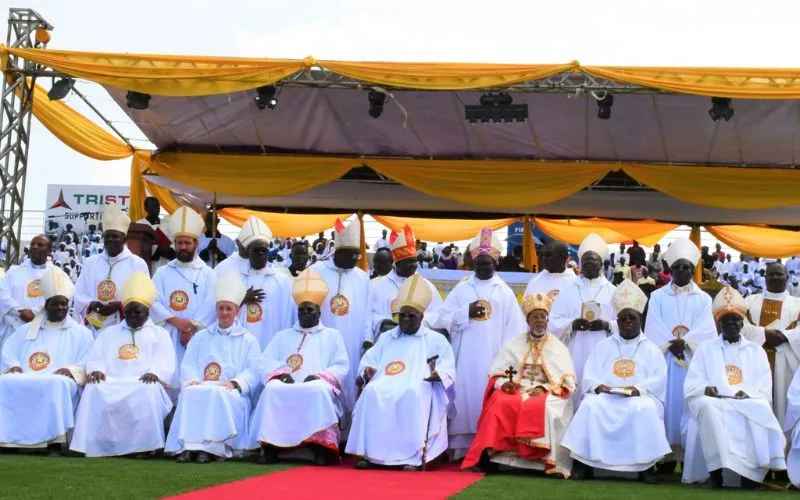 Credit: Ginaba Lino Michael/South Sudan/Juba
Credit: Ginaba Lino Michael/South Sudan/Juba
“Those who were here 40 years ago when we celebrated the first Eucharistic Congress here, we remember that that theme of one, of oneness was the center of our celebration. And it came out because we were in the middle of a very difficult time,” he said.
“There was much suffering around,” Cardinal Zubeir recalled, and added, “People were dying; people were running away, and life was very difficult. When we prepared that Eucharistic Congress, some people told us that we were mad; that this was not the time for such things. But then we said, when will the time come?”
He recalled that the countries’ first Eucharistic Congress found people in the “terribly divided.”
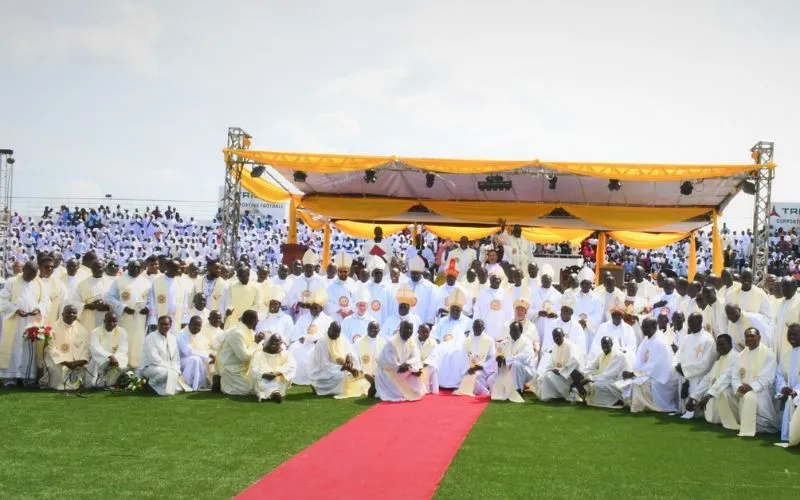 Credit: Ginaba Lino Michael/South Sudan/Juba
Credit: Ginaba Lino Michael/South Sudan/Juba
“People were terribly frightened…Even among relatives there was no more cohesion, not being together,” he said, and continued, “We said, no, this is exactly the time for it. Because God came among us in order to bring unity to the children of God.”
“Today, He is repeating that call to us. And we are responding to that call not because we are Christians, not because we go to Mass. We are celebrating in that way because it is the only way of our survival; it is the only way for our happiness; it is the only way of progress,” Cardinal Zubeir said in his November 24 homily at Juba National Stadium.
Agnes Aineah is a Kenyan journalist with a background in digital and newspaper reporting. She holds a Master of Arts in Digital Journalism from the Aga Khan University, Graduate School of Media and Communications and a Bachelor's Degree in Linguistics, Media and Communications from Kenya's Moi University. Agnes currently serves as a journalist for ACI Africa.
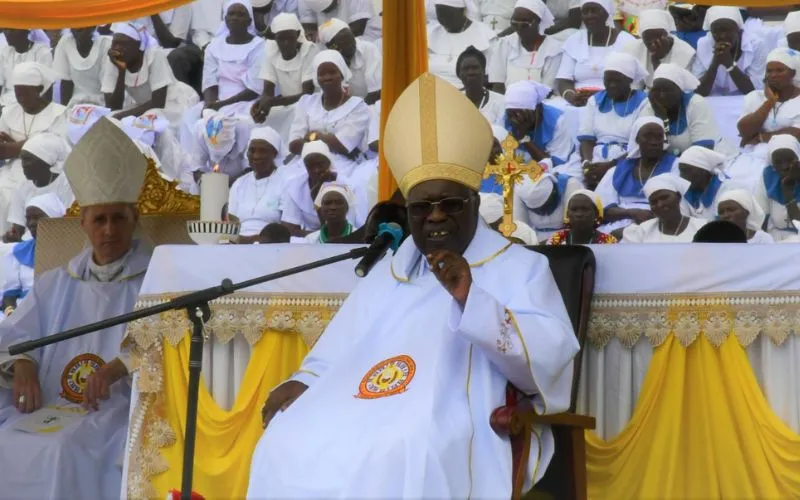 Gabriel Cardinal Zubeir Wako. Credit: Ginaba Lino Michael/South Sudan/Juba
Gabriel Cardinal Zubeir Wako. Credit: Ginaba Lino Michael/South Sudan/Juba


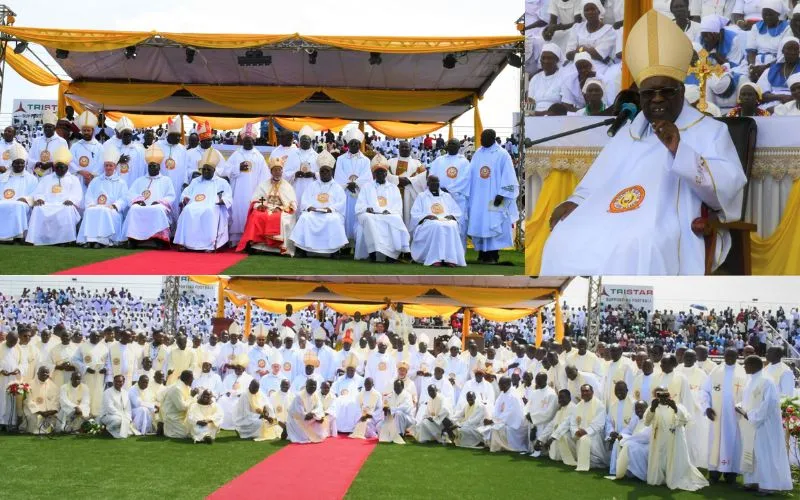
 Credit: Ginaba Lino Michael/South Sudan/Juba
Credit: Ginaba Lino Michael/South Sudan/Juba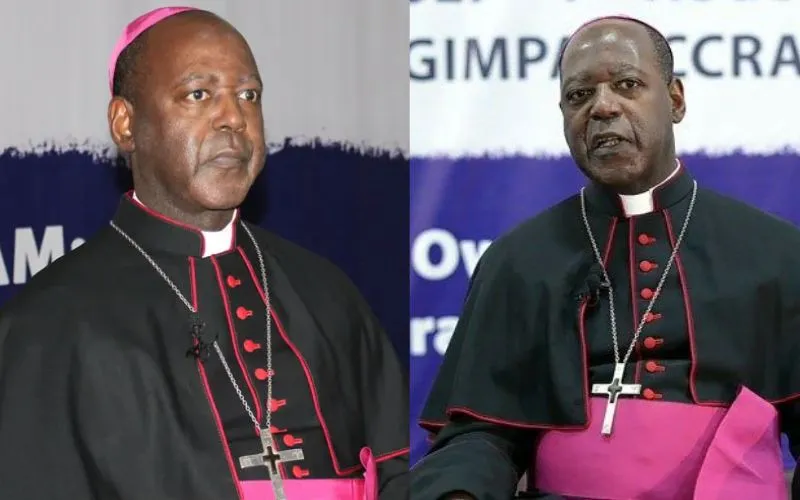
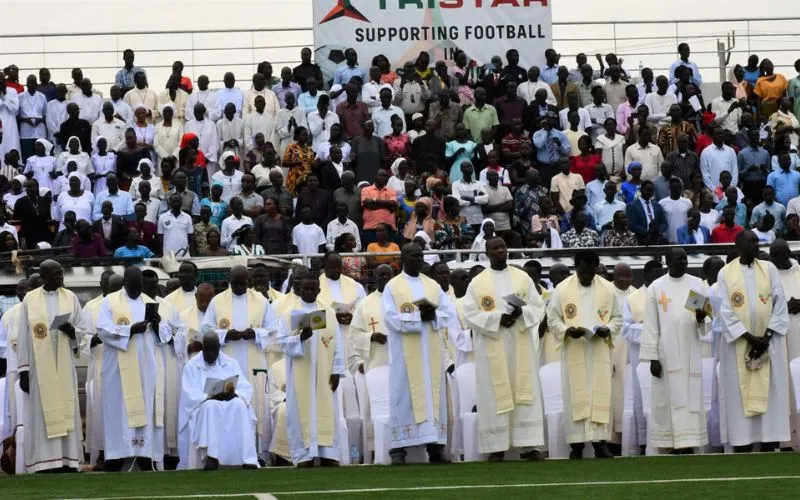 Credit: Ginaba Lino Michael/South Sudan/Juba
Credit: Ginaba Lino Michael/South Sudan/Juba Credit: Ginaba Lino Michael/South Sudan/Juba
Credit: Ginaba Lino Michael/South Sudan/Juba Credit: Ginaba Lino Michael/South Sudan/Juba
Credit: Ginaba Lino Michael/South Sudan/Juba Credit: Ginaba Lino Michael/South Sudan/Juba
Credit: Ginaba Lino Michael/South Sudan/Juba Credit: Ginaba Lino Michael/South Sudan/Juba
Credit: Ginaba Lino Michael/South Sudan/Juba Credit: Ginaba Lino Michael/South Sudan/Juba
Credit: Ginaba Lino Michael/South Sudan/Juba Credit: Ginaba Lino Michael/South Sudan/Juba
Credit: Ginaba Lino Michael/South Sudan/Juba


